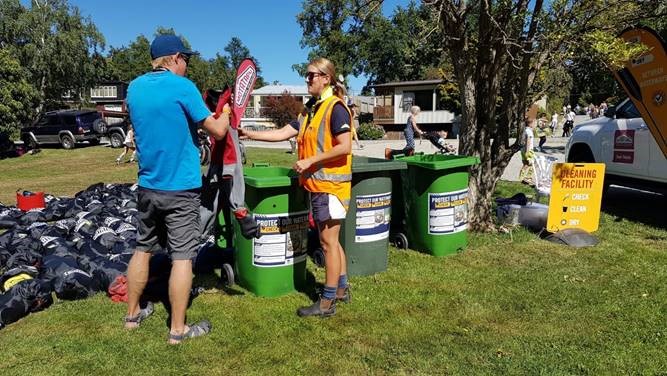The Otago Regional Council’s (ORC) biosecurity team will be out and about again this summer encouraging water users to Check, Clean, Dry to stop the spread of invasive aquatic pests like lagarosiphon.
The national campaign, led by the Ministry for Primary Industries, asks people to check all gear for any plant material and remove it, clean all gear thoroughly or dry it before using it in another waterway.
ORC Environmental Officer and Check Clean Dry Advocate Mandy Dalziel said the team surveyed 630 people in Otago last summer on their knowledge of freshwater pests and their actions to stop the spread.
“The number of people we surveyed was the second highest in the country, which was a great result despite some bad weather. We also achieved our goal of reaching a broader audience and targeting more remote areas.”
Otago’s beautiful lakes and rivers are a great holiday destination for fishing, water skiing, kayaking and swimming—all of which can spread aquatic pests like lagarosiphon and didymo.
Lagarosiphon is a pest in ORC’s Regional Pest Management Plan under site-led programmes because of its threat to the biodiversity and recreational values of our waterways.
“The results of last year’s survey showed that the majority of respondents could identify a freshwater pest such as didymo, lagarosiphon or lake snow and were keen to learn more,” Ms Dalziel said.
While a majority of the people surveyed said they always followed Check, Clean, Dry protocols between waterways, some respondents said they never followed protocols because aquatic weeds like didymo are already present in waterways.
“This is a really worrying perception, and we’ll be working to spread awareness of the wide range of aquatic pests that can threaten Otago’s waterways,” Ms Dalziel said.
“There are so many people in the community doing their part to protect our waterways from the impacts of freshwater pests and their work is greatly appreciated. Our next challenge is to reinforce the importance of the Check, Clean, Dry method in all circumstances to stop the spread of a wide range of freshwaters pests, and not just didymo.”
More information on aquatic pests and Check, Clean, Dry can be found on ORC’s Pest Hub at www.orc.govt.nz/pesthub.

ORC Environmental Officer and Check Clean Dry Advocate Mandy Dalziel encouraging people to Check, Clean, Dry at the Motatapu marathon last summer.
